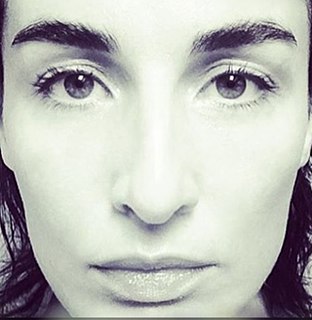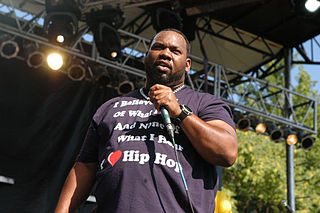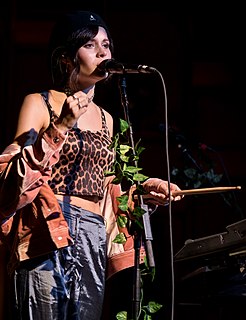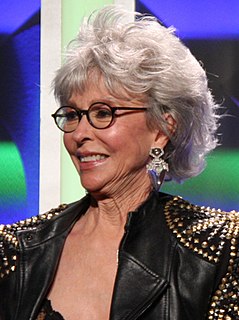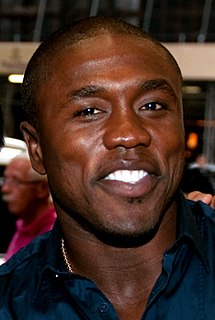A Quote by Molly Antopol
It was this feeling for a lot of my characters, who are dissidents or banned artists and writers, that they had had to fight living under so much surveillance, and then suddenly they come to America and they're like, I'm not being surveilled - I'm not even being noticed at all.
Related Quotes
No matter the specific techniques involved, historically mass surveillance has had several constant attributes. Initially, it is always the country’s dissidents and marginalized who bear the brunt of the surveillance, leading those who support the government or are merely apathetic to mistakenly believe they are immune. And history shows that the mere existence of a mass surveillance apparatus, regardless of how it is used, is in itself sufficient to stifle dissent. A citizenry that is aware of always being watched quickly becomes a compliant and fearful one.
My story wasn't one of those cliched stories of being an ugly duckling, I had a pretty good time at school. But then I think being six foot by the age of 15 meant that I couldn't help but be noticed, and that was when my physical being felt quite painful - I could not any longer walk into a room without being noticed.
And of course, Indonesian people are above all scared of being 'different'. Being different here is punished brutally. Different people get mocked, ostracized, raped, tortured, and murdered. They are banned. To be a Communist is banned. To be gay is banned. To be an atheist is banned. To be a Taoist is banned. Being one of a thousand things is banned.
I had a weird, empty feeling inside me. Not a bad sort of empty. It was a sort of lack of sensation, like being in pain for a long time and then suddenly realizing that you're not anymore. It was the feeling of having risked everything to be here with a boy and then realizing that he was exactly what I wanted. Being a picture and then finding I was really a puzzle piece, once I found the piece that was supposed to fit beside me.
I was living in a terrible time when people were being accused of being communists, and they attacked the movie industry, especially the writers. People couldn't work if they were on the blacklist. The studios banned them. It was the most onerous period in movie history. I don't think we have ever had a period so dark as that.
Before I think we was emcees, we was more or less narrators too. Because if you look at the early '80s hip hop, it was so much creativity goin' on with artists like then, like Slick Rick, then you had Rakim, and you had these different kind of artists back then. And we was a marble cake of all these artists. So I didn't have a problem with writin' stories because I felt like that was somethin' I loved to do. Even to this day, I really consider myself an entertainer-slash-narrator. I like to talk about stuff that goes on.
My middle name really is perseverance. I've always believed that I had talent, even when I felt like a very inferior sort of person, which I spent a lot of time living my life feeling that I wasn't worthy. But even then I knew that I had something special, and maybe that's what it takes. Maybe people need to have that kind of particular core driving them. But I felt I had talent.
It's a different mindset. Coming from where I come from, we always had to defeat the odds. We didn't have what other people had. We had to work twice as hard for everything. To be noticed to be seen. Even back then it drove me to be the best that I can be. I wanted everyone to know I was somebody you had to watch.
I just started asking my friends if they had noticed. None of them - feminists, mothers, daughters - noticed until I pointed it out. Then I decided to bring it up within the industry. I knew a lot of people, so I'd say, "Have you ever noticed how few female characters there are in kids movies?" when I met a director, a producer, whatever. And they said, "Oh, but that's not true anymore."
To be honest, I've always had far too much freedom. I had a job when I was 10. I started living on my own when I was 17 or 18. I've earned my own money; I've traveled the world. What would I rebel against? I've had so much freedom, sometimes it was hard. My parents wanted to protect me, but they had no idea how to. I had to learn as I went and make my own mistakes. I went from being totally unknown and never acting professionally to being in a major movie and being very famous. It all happened so quickly, I didn't have any time to work things out. It's been pretty scary at times.
It astonished me in the early Nineties to suddenly have musicians admit that they had been inspired and influenced by us. That meant a lot at that time. But of course, being human, the... disrespect isn't even strong enough a word, is it? The opprobrium was painful. Being popular and hated is not satisfying.


